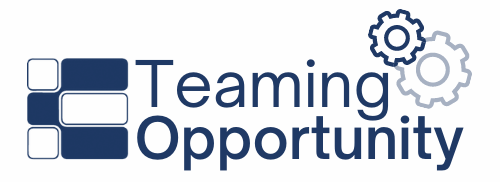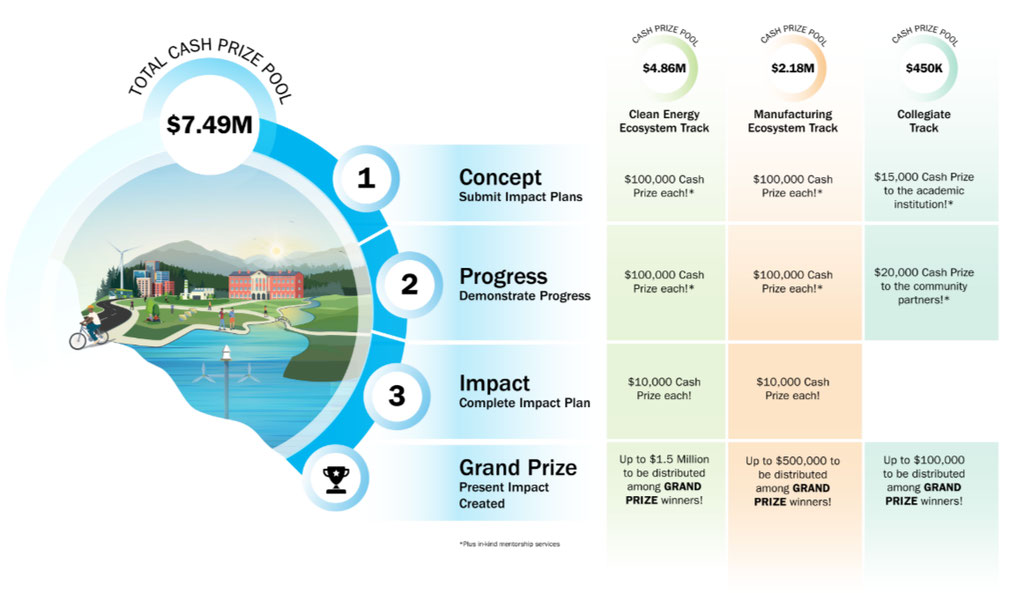Blog | Federal Investment
March 6, 2025
Awa Darboe | September 12, 2023
The Community Energy Innovation Prize (CEIP) is a new prize competition under the Department of Energy’s American-Made Challenges that will offer approximately $7.49 million in total funding to support community-based organizations, the private sector, nonfederal government entities, and collegiate teams in developing and carrying out activities related to clean energy that permit business and technology incubation and acceleration and other community-based capacity building, innovation, and entrepreneurship. The prize combines the goals of two previous prize competitions—the Community Clean Energy Coalition Prize and the Inclusive Energy Innovation Prize—building on their history of success in advancing community-based solutions to clean energy innovation and deployment.
The CEIP is structured in three tracks (outlined below): the Clean Energy Ecosystem Track, the Manufacturing Ecosystem Track, and the Collegiate Track. As a Power Connector on CEIP, CEBN will provide support to applicants on all tracks through group office hours and co-hosted Power Connector events.
Four Power Connectors (including CEBN) are supporting the prize. Sign up for individual or group office hours to ask questions about the prize and meet other applicants.
1:1 office hours- All Tracks:
Group sessions:

Do you need to build out your team with additional partners who can bring specific areas of expertise or connections to the table (e.g., clean energy technologies, finance tools, legal/regulatory matters, geographies, or community engagement strategies)?
Reach out to others interested in the CEIP and discuss opportunities to bridge these gaps. You can be part of multiple teams under different lead entities, so if a finance provider in New Hampshire may have relevant tools for your project in North Dakota, go ahead and reach out! Below are some ideas for how you can find partners:
The Clean Energy Ecosystem Track aims to support communities and organizations that have been historically underserved by awarding prizes for community-led projects that advance community-based clean energy transition programs across a wide variety of clean energy initiatives, technologies, and areas of focus. Example projects include (but are not limited to) workforce training programs, microgrid deployment in rural and low-resourced communities, engaging students from underserved communities in clean energy curriculum, and installing solar panels and batteries to create a resilient network for neighborhood food sites, cooling centers, and charging hubs.
Eligible applicants include private entities (for-profits and nonprofits); nonfederal government entities such as states, counties, tribes, and municipalities; academic institutions; and individuals.
The Manufacturing Ecosystem Track funds projects that accelerate the clean energy manufacturing innovation ecosystems in historically disadvantaged communities. Successful applicants will bring together public, private, and community stakeholders to address key obstacles to advancing manufacturing innovation, business models, and market development. These projects may include manufacturing-related education and workforce development, entrepreneurship, resilient supply chains, circular economy development, or other goals related to clean energy manufacturing.
Eligible applicants include private entities (for-profits and nonprofits); nonfederal government entities such as states, counties, tribes, and municipalities; academic institutions; and individuals.
The Collegiate Track challenges student-led teams to work alongside a community partner on a project focused on a critical issue related to the clean energy transition in their community. The goal is to help prepare students for careers in clean energy through collaboration in a real-world setting. Students from minority serving institutions (MSIs), universities located in rural and/or disadvantaged communities, and community colleges are highly encouraged to apply. Some suggested areas of study and/or specializations could include but are not limited to engineering, business, marketing, communications, policy, and social sciences.
Collegiate Track teams must be made up of an academic institution, eligible students, and a community partner that meets the eligibility requirements.
